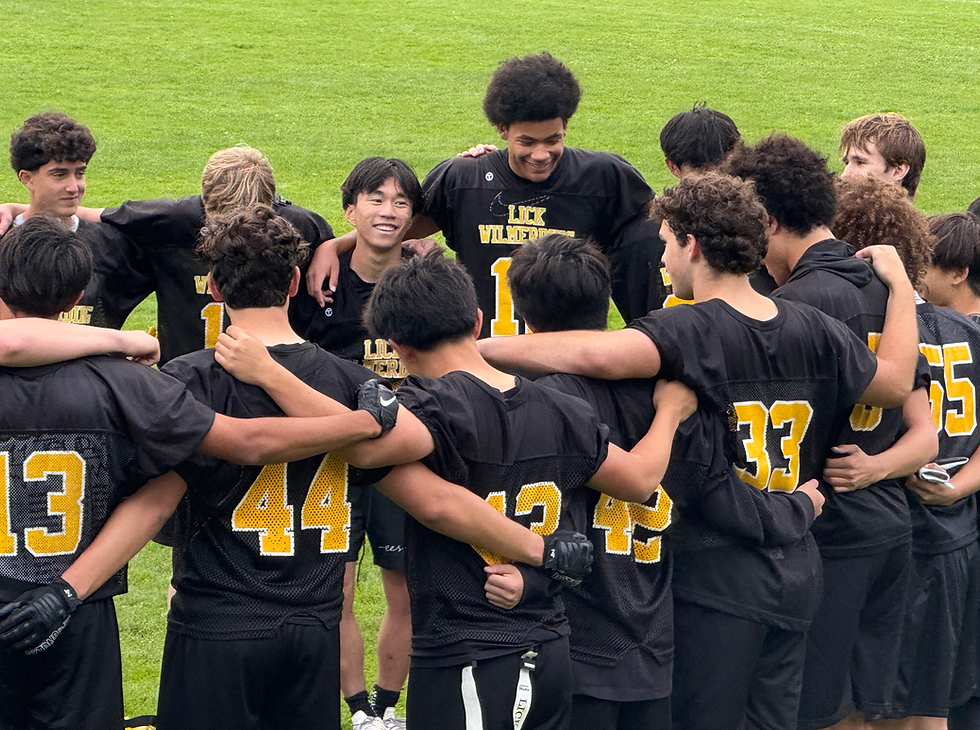Jock vs. Student Athlete: What’s the Difference?
- Caleb Wong
- Oct 21
- 2 min read
Updated: 5 days ago

There’s a reason I flinch when people call me a “jock.” Not because I’m ashamed of being an athlete—but because I’ve seen what that word can mean. And I know how it can trap boys/young men into a version of masculinity that leaves no room for honesty, mental health, or growth.
The term “jock” comes with baggage. It suggests someone who is obsessed with winning, disconnected from emotional intelligence, and constantly proving their worth through dominance. A jock isn’t just someone who plays sports—it’s someone who performs masculinity in the most rigid, traditional way: be the alpha, be aggressive, don’t show weakness, and never admit you’re struggling.
But being a student-athlete? That’s something else entirely.
A student-athlete is someone who embraces balance. Who understands that identity isn’t singular—that you can be strong and still be thoughtful, competitive and still be compassionate. A student-athlete sees the classroom, the field, the weight room, and the world as equal spaces for learning and becoming.
I’ve lived in both of those mindsets.
There were times when I tried to embody the jock persona—stoic, aggressive, always locked in. I thought it would earn me respect. And sometimes, it did. But it also cut me off from the joy of the game. It made me feel like I had to prove something constantly, not just to others, but to myself. It made it harder to ask for help. It made it harder to connect.
But when I shifted into the student-athlete mindset, everything changed.
I started playing not just for results, but for growth. I started listening to my body, to my teammates, to my emotions. I realized I could lead without dominating. That I could compete hard and still check in with a teammate going through something. That strength didn’t mean being the loudest guy in the room—it meant being the most grounded.
Studies back this up, too. Research shows student-athletes are more likely to report higher emotional resilience, stronger support systems, and healthier relationships with mental health. Jock culture, on the other hand, has been linked to suppression, isolation, and even increased risk of depression and substance abuse. It’s the classic mask: look tough, feel hollow.
At Stronger Minds, Stronger Men, we want to empower young athletes to choose identity over image. To see themselves as more than just a number on a jersey or a stat sheet. To understand that being a student-athlete isn’t about GPA or trophies—it’s about wholeness.
Because the real difference is this: Jock culture is about performance. Student-athlete culture is about growth. And when boys/young men grow, everyone wins.
.png)



Comments